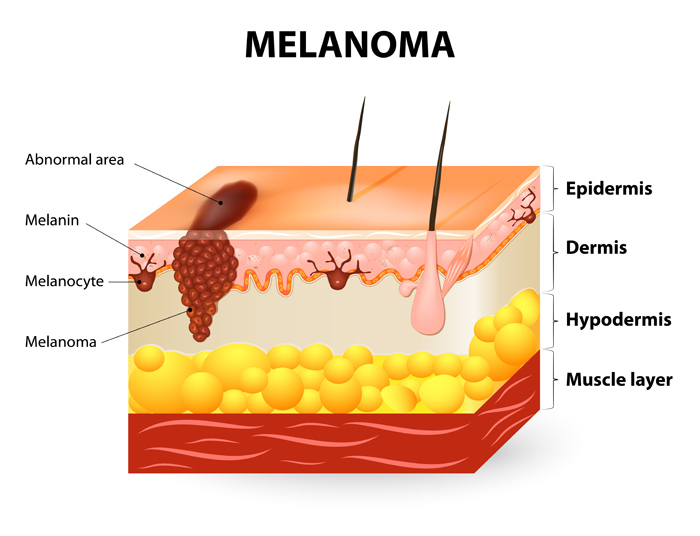
12th January 2017 New drug stops spread of melanoma by 90% Researchers have discovered that a new chemical compound, and potential drug, reduces the spread of melanoma cells by up to 90%.
The human-made, small-molecule drug compound targets a gene's ability to make RNA molecules and proteins in melanoma tumours. This gene activity causes the disease to spread, but the compound can shut it down. Until now, few other compounds of this kind have been able to accomplish this. "It's been a challenge developing small-molecule drugs that can block this gene activity that works as a signalling mechanism known to be important in melanoma progression," says Richard Neubig, pharmacology professor at Michigan State University and co-author of the study. "Our chemical compound is actually the same one that we've been working on to potentially treat the disease scleroderma, which now we've found works effectively on this type of cancer." Scleroderma is a rare and often fatal autoimmune disease that causes hardening of skin tissue, as well as organs such as the lungs, heart and kidneys. The same mechanisms that produce fibrosis, or skin thickening, in scleroderma also contribute to the spread of cancer. Small-molecule drugs make up over 90% of drugs on the market today and Neubig's co-author Kate Appleton, a postdoctoral student, said the findings are an early discovery that could be highly effective in battling the deadly skin cancer. About 10,000 people die each year from the disease in the US. "Melanoma is the most dangerous form of skin cancer," Appleton said. "One reason the disease is so fatal is that it can spread throughout the body very quickly and attack distant organs such as the brain and lungs." Through their research, Neubig and Appleton, along with their collaborators, found that the compounds were able to stop proteins, known as Myocardin-related transcription factors, or MRTFs, from initiating the gene transcription process in melanoma cells. These triggering proteins are initially turned on by another protein called RhoC, or Ras homology C, which is found in a signalling pathway that can cause the disease to aggressively spread in the body. Their compound reduced the migration of melanoma cells by 85 to 90 percent. The team also discovered that the potential drug greatly reduced tumours specifically in the lungs of mice that had been injected with human melanoma cells. "We used intact melanoma cells to screen for our chemical inhibitors," Neubig said. "This allowed us to find compounds that could block anywhere along this RhoC pathway." Figuring out which patients have this pathway turned on is an important next step in the development of their compound, because it would help them determine which patients would benefit the most. "The effect of our compounds on turning off this melanoma cell growth and progression is much stronger when the pathway is activated," explained Appleton. "We could look for the activation of the MRTF proteins as a biomarker to determine risk, especially for those in early-stage melanoma." If the disease is caught early, the chance of death is only 2 percent. But if caught late, that figure rises to 84 percent. "The majority of people die from melanoma because of the disease spreading," said Neubig. "Our compounds can block cancer migration and potentially increase patient survival." ---
Comments »
|







